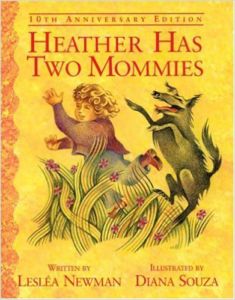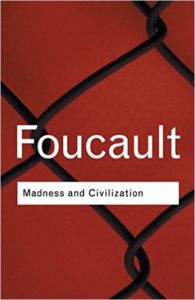I think I’ve pissed off some of my friends and colleagues over the last couple days by not being as quick to boycott Amazon for their newly discovered “policy” concerning “adult” books. Well, it probably wasn’t my reticence that annoyed. I may have pissed off some folks by playing Devil’s advocate with my typical Internet snark. (Sorry, Alex! I love you!) But I want to explain in a central place my feelings on the matter, and I want to provide some evidence to back up my assertions that this new policy is not a policy whatsoever, but rather an actual glitch, if one very wacky — and deeply problematic. In other words: Folks, simmer down now. Or not.
Here’s the background:
Over the weekend, the writer Mark Probst wrote a blog post that exposed a strange situation at Amazon.com. His sales rank no longer showed up on the page for his books. Weird. So, he emailed Amazon and asked why. The following is the customer service email heard ’round the world:
In consideration of our entire customer base, we exclude “adult” material from appearing in some searches and best seller lists. Since these lists are generated using sales ranks, adult materials must also be excluded from that feature.
Hence, if you have further questions, kindly write back to us.
Best regards,
Ashlyn D
Member Services
Amazon.com Advantage
Oh, Ashlyn. This sounds bad. Very, very bad. Because Probst does not write porn. He writes tame gay romance. And it turns out that other books affected by this “policy” are, basically, every gay and lesbian themed book on Amazon. Meanwhile, Hitler’s work and every straight and sexy book remain unaffected. There’s a fabulous list of the books de-ranked and not de-ranked (and a rundown of the events) over at Jezebel, which managed to be all over this story on Easter.
Probst’s post resulted in a firestorm on the Internet, particularly on Facebook and Twitter. On the latter, the hashtag #amazonfail became the number one tag in the Twitterverse. And when an actual PR rep at Amazon told Publishers Weekly that it was not a policy but rather a “glitch,” the harshtag #glitchmyass became increasingly popular.
I first read about this via DogPoet’s feed, which led me to this blog post, which is full of unfounded hysteria about Amazon killing literature. Oh, the conspiracy theories! Oh, the nonsense. I got annoyed and started doing searches to see if books were actually missing. I discovered that a bunch of the famous books that were de-ranked were still very easily found; I posted a bunch of screengrabs to prove that. Read through the comments to see how some people reacted to my questioning of the hysteria; it is reminiscent of when I was called a collaborator during the Prop 8 campaign.
As the day wore on, it became clear that the searches were turning up totally bizarre results, and they were different for everyone, logged in or out. And they made no sense. For example, if you type in “boys men,” the results had softcore gay porn as the #5 result, and the Kindle version of our book was #27. But the print version of the book was nowhere to be found. It had been de-ranked, and pretty much hidden.
The fact that only print books were affected by this “policy” tells me — being a rather rational person — that this was not an anti-gay policy, but rather a glitch. A weird one, but a glitch nonetheless. And there’s growing evidence that this is the case. On the list-serv for LGBT anthropologists, a professor sent out an email about the situation and pointed out that all of the queer studies books — basically any academic book about LGBT issues, including Foucault’s The History of Sexuality and Sedgwick’s The Epistemology of the Closet — had been de-ranked. And he linked to the rationally written petition (which I’ve signed, by the way).
The first response on the list-serv was very interesting. C. Todd White, whose Pre-Gay LA: A Social History of the Movement for Homosexual Rights is forthcoming, had discovered his book was de-ranked and now hidden. So, he called Amazon:
After being routed to three different people, I at last had a very interesting discussion with a woman on Amazon’s customer service team who said that the entire organization had been blindsided by this. It seems that they had reconfigured their system to isolate erotica, and the new program or “algorithm” has caught far more in its net than they had intended.
I was assured that Amazon was on the problem and that they had not intended for academic books, esp., to have been so affected. I pointed out that censorship in any form is always a slippery slope; the woman answered that she totally agreed and then informed me that she was “a member of the club.” She assured me that she will be working very hard within Amazon to see that works such as those Tom has listed will be included in the sales rankings and in “best of” lists, as they were before. She also said, however, that she was afraid for her job if indeed it WAS a policy from higher ups; but she doubted that was the case as no one in her division had heard that such a “policy” was being implemented. She was pretty amazed, though, that when she tried, even searching my book by its title failed to yield the text. She had to search by my name to find it. [NOTE: I had to google the book to find it. When I typed the title into Amazon, it didn’t come up.]
For what it is worth. I still think we should shout LOUDLY and sign the petition. However, it might indeed have been an accident. Let us hope!
Unless Amazon has an incredibly devious staff capable of amazing amounts of manipulation, I find it very, very hard to believe that this event was the result of a new “policy.” It sounds much weirder. I think there are two possibilities. One is that the algorithm was so wacky that all the gay books were actually tagged as “adult.” Another is that there’s a homobigot at Amazon who had access to the databases. (Or a hacker! Also, here.) I do not think it is possible that Amazon has anti-gay corporate agenda. It simply does not make sense considering its long history as a progressive company and its high scores on the Human Rights Campaign’s corporate index.
So, I think a boycott is a ridiculous over-reaction to this situation. If it remains as a “glitch” for more than a few days, then, yes, we should act. But many people in the Twitter mob are acting as if Amazon should be put in the same club as, say, Exxon or Wal-Mart. And before we even have any facts beyond the email to Probst, the “glitch” comment, and a bunch of weird search results. In a moment of exasperation, I wrote a comment that said, “I hope everyone deleting their Amazon accounts also never buy gas at Exxon, never buy anything at Urban Outfitters, never watch anything made by a network or studio owned by News Corp, and didn’t vote for Obama because he was for civil unions, not marriage. Purity above all!” (And, yeah, I know I screwed up the subject-verb agreement. It was late.)
 As I write this, it looks like some of this is being fixed. For example, Heather Has Two Mommies has a ranking again. Others do not. However, there are a couple lessons to be learned here. One is that, WOW, Twitter can make shit happen. Here’s a good, brief article on that. Two is that, ruh-oh, algorithms can be result of homophobic practices and ideologies. The esteemed Mary Gray, of Indiana University, wrote a couple of great emails to the aforemention list-serv that she has allowed me to reprint:
As I write this, it looks like some of this is being fixed. For example, Heather Has Two Mommies has a ranking again. Others do not. However, there are a couple lessons to be learned here. One is that, WOW, Twitter can make shit happen. Here’s a good, brief article on that. Two is that, ruh-oh, algorithms can be result of homophobic practices and ideologies. The esteemed Mary Gray, of Indiana University, wrote a couple of great emails to the aforemention list-serv that she has allowed me to reprint:
Actually, I love thinking about the “glitch” question in relation to filtering software often bundled with K-12 computer facilities in U.S. schools: The majority of commercial filtering software programs on the market tag and block websites with the word “sex”–this is a default setting of these programs. Blocking access to porn or “adult content” usually means filtering “gay” “lesbian” “bi” “trans” and a host of other words that produce porn when you plug them into a search engine. Ironically, one of the ways young people get to info about LGBT issues is by searching sites like Amazon (the filtering software doesn’t limit access to Amazon’s search engine).
Amazon’s ability to remove the sales rankings on books it deems “adult” is, effectively, bound by the same filtering logic — it probably couldn’t do a systemwide “filter” of adult content without ensnaring LGBT titles because it likely linked LGBT titles to sexuality (their way of sorting us in the HQ section of their libraries).
Glitches are arguably the residue of politics and policies meant to manage inclusion/exclusion (what I’m starting to call the “cyberinfrastructures of subjectivity). As interesting as the intentions of Amazon in this case might be (did they mean to distance themselves from “Heather has Two Mommies” by tagging it as adult
content?) odds are the associative labeling that linked “Heather” with “erotica” in their massive relational database happened 14 years ago when Amazon launched in 1995.
I just checked: “Heather” has its ranking back on Amazon.
I wrote back mentioning that, among other things, “I hope someone is looking at the reaction to this from an anthropological point of view. The speed at the which Twitter made this into a now international internet/business event is amazing.”
And then Mary wrote another email:
I’m arguing that the glitch itself is a manifestation and circulation of structural heterosexism/sex-negative cultural mores (I’m hesitant to use “homophobia” for reasons that I hope will make sense in a second).
So, like Stuart Hall’s argument (in the essay, Whites of Their Eyes) that racism operates through individual intentions but more powerfully through institutional structures (including language) that privilege whiteness, I’m arguing that the “glitch” is both/and (to paraphrase Burke)–it’s both a culturally influenced algorithm and an act of policy–intentional or not. At any time in it’s database management, Amazon could have chosen to prioritize changing its tags to avoid this “glitch.” Priority lists in information management are as political as any policy statement (at least that’s my argument).
In fact, I’d argue that the mundane story of databases and why Kindle might not have filtered these titles while Amazon’s print book market did is a much more rich terrain for investigation than the popularity of this tweet on twitter. Twitter, after all, is watched closely by newsmakers (bloggers, publishers, and journalists) to see “what’s hot” in the hopes of breaking the next “big story.” Is it really that surprising that authors and publishers concerned with their sales rankings and the implications of content-filtering came out in force (on twitter) to push back and make this news (the industry writing about itself)? That’s interesting (and important) but twitter is still a relatively underutilized social media tool. Amazon and the consequences of its database management impact far more folks.
So, just like every other small moment of discrimination, the “glitch” is actually part of a vast cultural problem rich for analysis. How has the embedded heterocentrism (etc.!) of our language become embedded in our oh-so-important information systems? Amazon as a company may not be trying to hurt gay people, but the cultural remnants of homophobia have found their way into its databases, somehow. How do we fix that? By not simmering down, I guess. That said, I’d prefer that we fought the power with a little more intelligent boil. And that said, the boil of the last few days exposed what Mary eloquently explained. So I guess it was useful after all…
UPDATE: Amazon has put out an actual “oops!” press release. But, as you can tell from the comments on the Seattle PI, nothing short of a guillotine will suffice. You’d think Jeff Bezos was behind Prop 8 or something.
UPDATE #2: It’s looking more and more like a programming/management glitch. Really. Here’s Jezebel’s damn fine round up. The Seattle PI’s blog has the details:
On Sunday afternoon at least 20 Amazon.com employees were paged alerting them that items, possibly many, were incorrectly being flagged as adult. The employees also received links to the Twitter discussion AmazonFail.
Thousands of people were angry that gay-themed books had disappeared from Amazon’s sales rankings and search algorithms. The number of Tweets on Sunday afternoon that had the term “AmazonFail” surpassed even those with the words “Easter” or “Jesus.”
By this time, Amazon.com had upgraded the problem to Sev-1. (Amazon.com breaks down its operational issues in terms of severity levels. Sev-3 means a problem affects a single user. Sev-2 is a problem that affects a company, or a lot of people. Sev-1 is reserved for the most critical operational issues and often are sent up the management chain to the senior vice president level.)
“People got pulled away from their Easter thing when this whole thing broke,” the employee said. “It was just a screwup.”
Amazon.com employees are on call 24/7, and many began working on the problem from home. It didn’t take much digging to realize that there was a data error.
Amazon managers found that an employee who happened to work in France had filled out a field incorrectly and more than 50,000 items got flipped over to be flagged as “adult,” the source said. (Technically, the flag for adult content was flipped from ‘false’ to ‘true.’)
“It’s no big policy change, just some field that’s been around forever filled out incorrectly,” the source said.
 A few weeks ago, after a long day at the beach, after I’d already settled into the couch and the Tivo, Rob reminded me that we’d promised to go to a story slam.
A few weeks ago, after a long day at the beach, after I’d already settled into the couch and the Tivo, Rob reminded me that we’d promised to go to a story slam.






